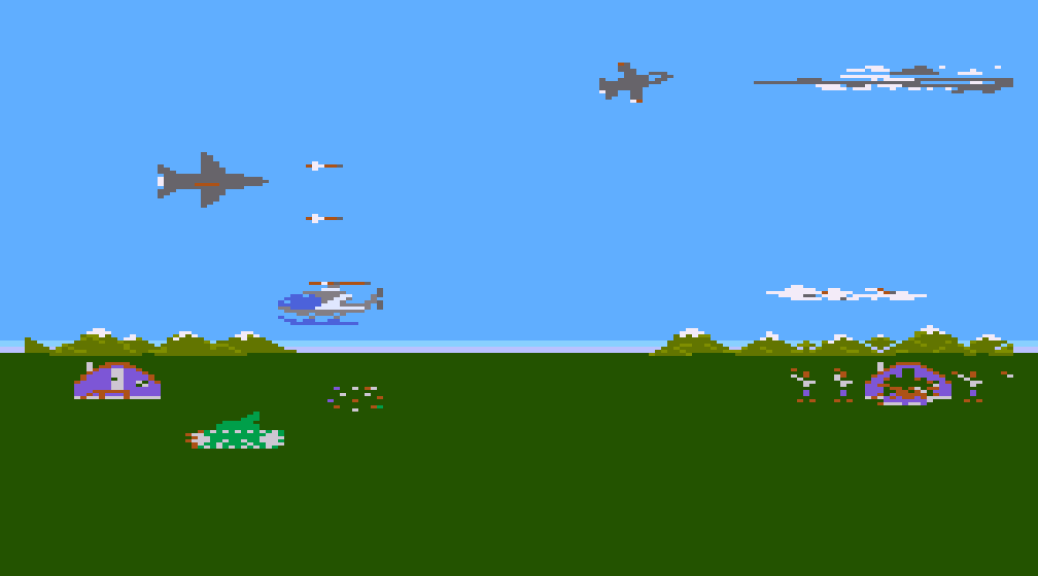This ‘enhanced’ remake of Dan Gorlin‘s Choplifter was released for Atari XE computers by Atari Corporation in 1988. It features improved graphics, but with pretty much the same gameplay as the original.
Category Archives: Atari 8-bit
Games for Atari 8-bit home computers.
Choplifter, Atari 8-bit
The Atari 8-bit home computer version of Dan Gorlin‘s Choplifter was published by Brøderbund in 1982. It came out not long after the Apple II original.
Stunt Car Racer, Atari 8-bit
Geoff Crammond‘s classic Stunt Car Racer was converted to Atari 8-bit systems by homebrew coders Fandal and Irgendwer in 2018. And it is an excellent port that plays identically to the C64 version it is based upon.
Pooyan, Atari 8-bit
The Atari 8-bit version of Konami‘s classic arcade game, Pooyan, was coded by Scott Spanburg, with graphics by Kelly Day, and was published by Datasoft in 1983.
H.E.R.O., Atari 8-bit
John Van Ryzin‘s classic cave rescue game, H.E.R.O., was ported to Atari 8-bit computers by The Softworks and first published by Activision in 1984.
Salmon Run, Atari 8-bit
Written by Bill Williams (the writer and designer of Sinbad and the Throne of the Falcon, among other games), for the Atari Program Exchange, and first released in 1982, Salmon Run is a clever, and uniquely different, video game based upon the life cycle of a fish – a salmon, specifically – that is trying to swim upstream to its spawning ground.
Flip and Flop, Atari 8-bit
Flip and Flop is an isometric action/maze/platform game designed by Jim Nangano and first published for Atari 8-bit computers by First Star Software in 1983.
The Eidolon, Atari 8-Bit
Using an enhanced version of the fractal engine created for Rescue On Fractalus, The Eidolon is a first-person action game – developed by Lucasfilm Games and published by Epyx in North America in 1985 and Activision in Europe in 1986 – that divided critics when it was first released. While Zzap!64 magazine gave it 97% and a gold medal; raved about the game, and said that it was “not to be missed“, the reviewers of Computer Gaming World disliked it, describing it as “one of the worst games of 1986“… There’s no accounting for taste…
Commando, Atari 8-Bit
***CANNED GAME***
The Atari 8-Bit version of Commando was developed by Sculptured Software for Data East in 1989, but unfortunately the game was never released. Thankfully a prototype still exists and is available online, which is good because this is one of the best 8-bit ports of Commando around.
Beef Drop, Atari 8-Bit
Beef Drop is a homebrew BurgerTime clone programmed by the late Ken Siders and released through AtariAge in 2005. As far as home ports of Data East‘s classic arcade game go, it’s arguably one of the most authentic.









